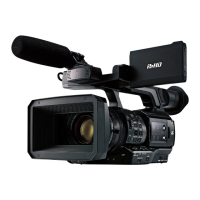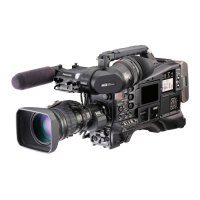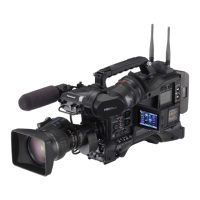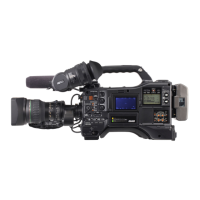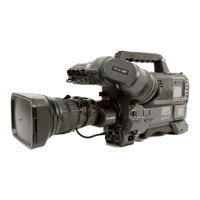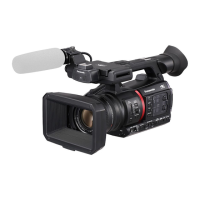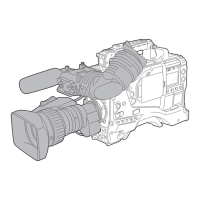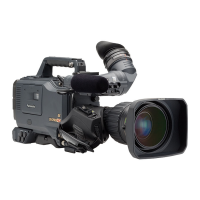– 127 –
Chapter 6 Menu Operations — Setting menu structure
Setting menu structure
Menu types and how to open them
Menu type Use How to open
[USER MENU]
In the main menu → [USER MENU SEL], you can select
the desired items and pages and register to [USER
MENU]. You can select them depending on the purpose or
frequency of use to make a unique menu structure.
For details, refer to “Setting [USER MENU]” (page 129).
Displayed by pressing the <MENU> button.
Main menu You can set all items in the setting menu.
The main menu has a structure of categorized layers
according to intended use and setting frequency.
Displayed by pressing and holding the <MENU> button for
three seconds or more.
[OPTION MENU] Menu items are prepared to take into account additional
functions in the future.
Please consult your vendor for more details.
Displayed by pressing the <MENU> button while holding
down the <LIGHT> button.
Main menu structure
Item Description of settings
[SCENE FILE] Congures the settings for scene les.
This item is used to congure detailed image quality settings of the camera images, to select scene les, and to
congure the settings for reading/writing of scene le data to the internal memory.
This menu item cannot be set when the thumbnail screen is displayed.
[SYSTEM MODE] Congures the settings for the recording format of video and audio.
[USER SW] Sets the function to be assigned to the USER button and the <RET> button of the lens.
[SW MODE] Congures the operations of each mode when switched the mode using each switch.
This menu item cannot be set when the thumbnail screen is displayed.
[RECORDING SETUP] Congures various settings when performing recording and playback.
Set the system frequency, the number of lines, recording format, and recording method.
[CLIP] Use this item to perform various tasks, such as playing back, deleting, formatting, copying clips, and editing metadata,
while checking the thumbnails of the clips displayed in the viewnder.
This menu item is enabled when the thumbnail screen is displayed.
Clip operations such as [DELETE] or [COPY] are enabled when the target thumbnail is selected.
Some items are displayed only in specic situations such as in USB host mode or on the explorer screen.
[AUDIO SETUP] Congures the settings for audio input/output.
[IN/OUT SEL] Congures the settings for the output from <SDI OUT1>, <SDI OUT2/IN>, <HDMI>, <GL IN/VIDEO OUT>, and <TC IN/
OUT> terminals.
[NETWORK SETUP] Congures the settings for network.
[DISPLAY SETUP] Congures the settings for the details to be displayed in the viewnder.
This menu item cannot be set when the thumbnail screen is displayed.
[BATTERY SETUP] Congures the settings for the battery.
[CARD FUNCTIONS] Congures the settings for reading/writing of scene les and user les to SD memory cards.
[OTHER FUNCTIONS] Congures the settings for reading/writing of user les to internal memory and initialization, and the camera settings.
[MAINTENANCE] Used for performing maintenance of the camera. This item is used when updating the rmware version of the camera.
[DIAGNOSTIC] Displays the rmware version, product name, serial number, and energized time of the camera.
[USER MENU SEL] Sets the items to be displayed in [USER MENU].
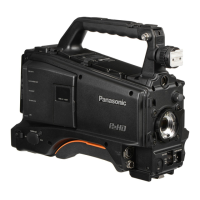
